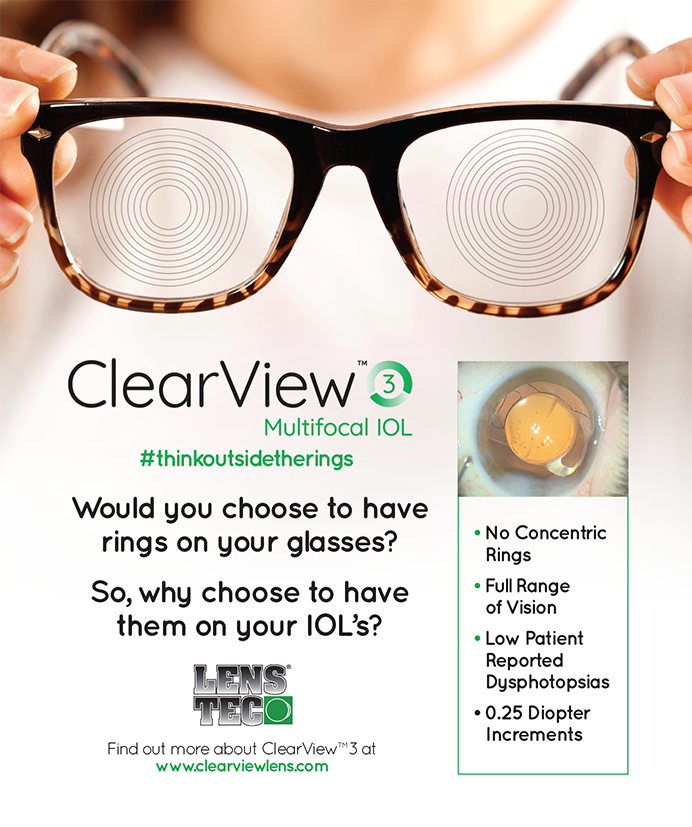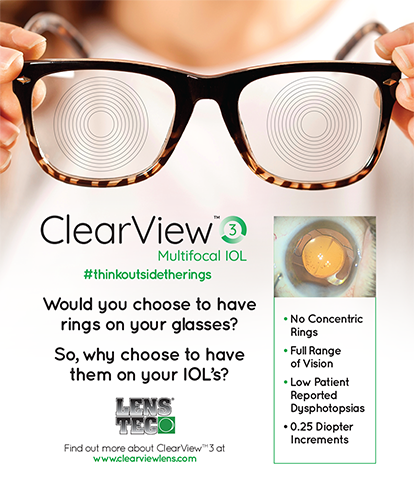Although some detractors criticize us as not practicing what we preach, a high percentage of ophthalmologists undergo elective eye surgery. Actually, we do so at the highest rate of any identifiable demographic group (R. Lindstrom, MD, written communication, September 2008). I do not believe an ophthalmologist must undergo eye surgery to avoid being hypocritical or to be able to consult properly with his own patients. I myself have not had eye surgery; I am a little myopic in one eye and am old enough to like the natural monovision. Nevertheless, an ophthalmologist who has undergone eye surgery is uniquely positioned to counsel his patients, and this issue of Cataract & Refractive Surgery Today focuses on some of these surgeons' stories.
I am humbled and a bit amazed when surgeons select me to perform their surgery. It is the highest honor of my career without a doubt. During the consultation, I think about the issues that each doctor-patient must confront. Why have surgery now? Which procedure and what parameters? Which surgeon?
I believe that the decision by all patients, doctors or not, to undergo surgery is intensely personal and individual. There is always something better around the corner (this issue of CRSToday includes RK stories!). As R. Bruce Grene, MD, writes in his article, however, there is never something perfect around the corner. I believe many doctors choose their surgeon based on the operation they want. For example, few doctors come to me for PRK, although I certainly perform the procedure. Many ophthalmologists select the doctor who taught them the procedure. Most go out of town. I know they all contemplate the risk of a devastating, career-ending complication.
The surgeons I have operated on are the best of patients. Many are good friends whom I am excited simply to have visit me. We draw on their valuable knowledge of the field as well as my experience to plan the surgery together. When these doctors lie down on the table, however, they become patients, and they play the role well. They are uniformly good-natured and properly motivated. They are not complainers and are always a joy to work with. If I could have a practice consisting entirely of surgeons, I would.
I hope that you enjoy this issue of CRSToday as much as I did. I suspect that you will see a bit of yourself in these wonderful, personal stories, whether you have had eye surgery or not. My last remark on this month's cover series regards my surgeon-patients' most common preoperative question, which relates not to complications, my experience, their recreational activities, or science. Rather, they all ask, "When can I go back to work?" Maybe we are a bit too dedicated.


